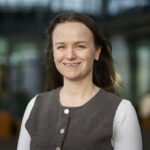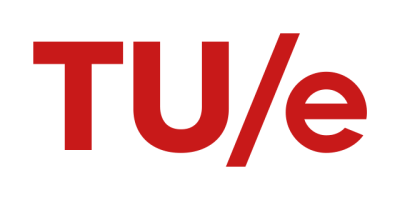TU/e
Eindhoven University of Technology (TU/e) is a young university, founded in 1956 by industry, local government and academia. Today, their spirit of collaboration is still at the heart of the university community. We foster an open culture where everyone feels free to exchange ideas and take initiatives.
Eindhoven University of Technology combines scientific curiosity with a hands-on mentality. Fundamental knowledge enables us to design solutions for the highly complex problems of today and tomorrow. We understand things by making them and we make things by understanding them.
Eindhoven University of Technology offers academic education that is driven by fundamental and applied research. Our educational philosophy is based on personal attention and room for individual ambitions and talents. Our research meets the highest international standards of quality. We push the limits of science, which puts us at the forefront of rapidly emerging areas of research.
Our campus is in the centre of one of the most powerful technology hubs in the world: Brainport Eindhoven. Globally, we stand out when it comes to collaborating with advanced industries. Together with other institutions, we form a thriving ecosystem with one common aim – to improve quality of life through sustainable innovations.
Role in the project
Eindhoven University of Technology (TU/e) contributes expertise in image processing, artificial intelligence, and medical research to advance the automatic selection of optimal working projections for intracranial aneurysm treatment. TU/e is responsible for developing AI-driven solutions that assist in determining the best viewing angles during endovascular procedures, enhancing procedural efficiency and patient outcomes.
Team
Daniel Ruijters

Daniel Ruijters is a part-time professor at the University of Technology Eindhoven (TU/e) on the topic of data driven value-based healthcare in image guided therapy, and works as a principal scientist at the innovation department of the Image Guided Therapy (IGT) business cluster of Philips Healthcare in Best, the Netherlands, where he leads the IGT procedure automation and robotics study.
He received his engineering degree at the University of Technology Aachen (RWTH), and performed his master thesis at ENST in Paris. Next to his work for Philips, he has performed a joint PhD thesis at the Katholieke Universiteit Leuven and the University of Technology Eindhoven (TU/e). His primary research interest areas are medical image processing, artificial intelligence, application of data techniques in interventional treatment, 3D visualization, image registration, fast algorithms and hardware acceleration.
Annekoos Schaap

Annekoos Schaap is a PhD candidate at the University of Technology Eindhoven (TU/e), where she is supervised by part-time professor Danny Ruijters and full professor Sveta Zinger. She focusses on automatic selection of working projections for intracranial aneurysms.
With a master’s degree in Electrical Engineering specializing in Signal Processing Systems and Care & Cure from the TU/e, Annekoos Schaap has a strong foundation in AI-driven medical imaging. Her master’s thesis focused on prostate cancer prognosis, integrating diagnostic imaging and genomic data to identify imaging features associated with tumor aggressiveness. Using machine learning models (SVM, KNN, LR), she classified tumors based on their Gleason scores. Her research highlighted significant correlations between imaging and genomic features, supporting non-invasive personalized treatment strategies.

